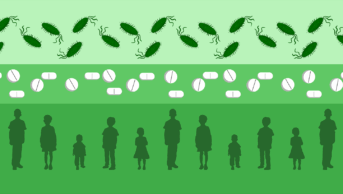
Shutterstock.com
Pharmacists have a strong role to play in supporting junior doctors with safe prescribing, a new support guide published by the Royal College of Physicians (RCP) says.
Produced with support from the Royal Pharmaceutical Society, the guidance says that hospital pharmacists can provide “on the spot” guidance and feedback on prescribing, as well as mentoring and supporting junior doctors on the safe use of medicine.
Junior doctors are responsible for two-thirds of all hospital prescriptions, the RCP says, and an estimated 7% of all medication orders are affected by prescribing errors.
“It is best to develop a prospective process by supporting junior doctors when they start prescribing,” said Aamer Safdar, principal pharmacist lead for education and development at Guy’s and St Thomas’ NHS Foundation Trust. “Currently, the way the system works is that junior doctors make mistakes and you go and correct them, which is a retrospective process.”
The new RCP guide, ‘Supporting junior doctors in safe prescribing’, also calls for greater support from hospital trusts to create safer working environments for junior doctors to prescribe.
Although junior doctors get some training in safe prescribing in their first foundation year, this is often focused on local guidelines, Safdar said. By contrast, juniors get little education on the legalities of both prescribing and de-prescribing medication.
“It’s not without harm and risk, and part of what they need to be able to do is practise their prescribing skills with minimum risk,” he added.
As junior doctors rotate frequently between hospitals, pharmacists already working on hospital wards were best placed to support trainees from the start, he said.
The RCP guide also recommends that postgraduate medical education leads work with medication safety officers to identify opportunities to teach safe prescribing within medical education and encourage active efforts to learn from errors, both at an individual and system level.
“As current medical students and foundation doctors, we acknowledge the considerable efforts that have been made to support us in our commitment to being competent prescribers,” said Josie Cheetham, junior doctor representative of the Student and Foundation Doctor Network (SFDN).
“However, we feel that great nationwide efforts are still needed to support the challenging transition to prescribing.”


